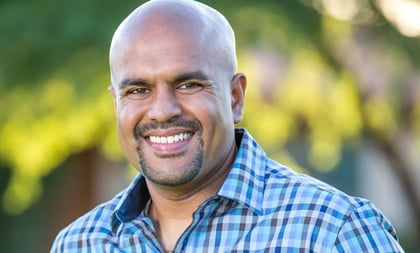“Our industry has gone on a scale bonanza” where large turnkey asset management platforms give short shrift to financial advisors with under $100 million in assets under management, argues Manish Khatta, president and chief investment officer of Potomac Fund Management, in an interview with ThinkAdvisor.
Enter: Potomac’s TAMP for the smaller independent FA. Called Union, the unified managed account platform serves up big-TAMP technology plus “human handholding,” Khatta says.
So far, the firm has signed up four advisors for Union. They have transitioned 50% of their books to the UMA, which was introduced this past July.
Response has been so strong that in the fall, Potomac started a months-long waitlist. Since Union’s launch, the boutique investment strategist that manages advisor portfolios has nearly doubled its AUM to about $300 million.
Potomac is also helping clients via its role as a model profitable virtual business, having operated 100% remotely for a year now. In the future, remote “may be the [industry] norm,” says Khatta.
Union, created for entrepreneurial FAs, is an all-in-one tech platform integrated with Potomac’s back-office service team to run core business functions with support from humans, not from the proverbial automated “phone tree.”
Khatta, 41, joined the Miami-based firm in 2002, the year after he graduated with a bachelor’s degree in finance from the University of Maryland. His investment strategies focus on quantitative trading systems: “Price is the only thing that matters,” he contends, adding that a “great example” has been the 2020 stock market.
ThinkAdvisor recently interviewed Khatta, speaking by phone from Fort Lauderdale, Florida. About smaller advisors’ pressing needs, he stressed that independents who have worked hard to build practices of $20 million to $50 million in AUM “deserve more than a call center” to help them.
Here are excerpts from our conversation:
THINKADVISOR: With the economic downturn and volatile stock market, how does being a quant help you?
MANISH KHATTA: “Just follow the price, dummy” is what I have on my screensaver. Quants ignore the economy when it comes to money management and the stock market: We believe the only thing that matters is price. Price is pure; there’s truth in price.
Have you seen that proven in 2020?
Yes. 2020 is a great example. The pandemic is arguably the greatest macro event ever, and the stock market just shrugged it off.
Why does “Just follow the price” work for you?
It cancels out the noise. If the stock market is going up and making new highs, who cares about what else is going on. The narrative doesn’t matter.
Have investment advisors’ needs changed because of the economic decline and attendant uncertainty?
Advisors have to be able to onboard and service clients digitally. It’s no longer a luxury; it’s a necessity to their practices. So those needs have really changed. In March, we did Zoom training for our advisors.
Why was training needed?
They might have had future tech enhancements on their roadmap planned for five to 10 years from now, but the pandemic forced those future enhancements to [be implemented] in six months. You have to execute on them now because of the environment we’re in.
What prompted you to launch the Union UMA [Unified Managed Account] TAMP this past July?









 January 07, 2021 at 10:24 AM
January 07, 2021 at 10:24 AM











